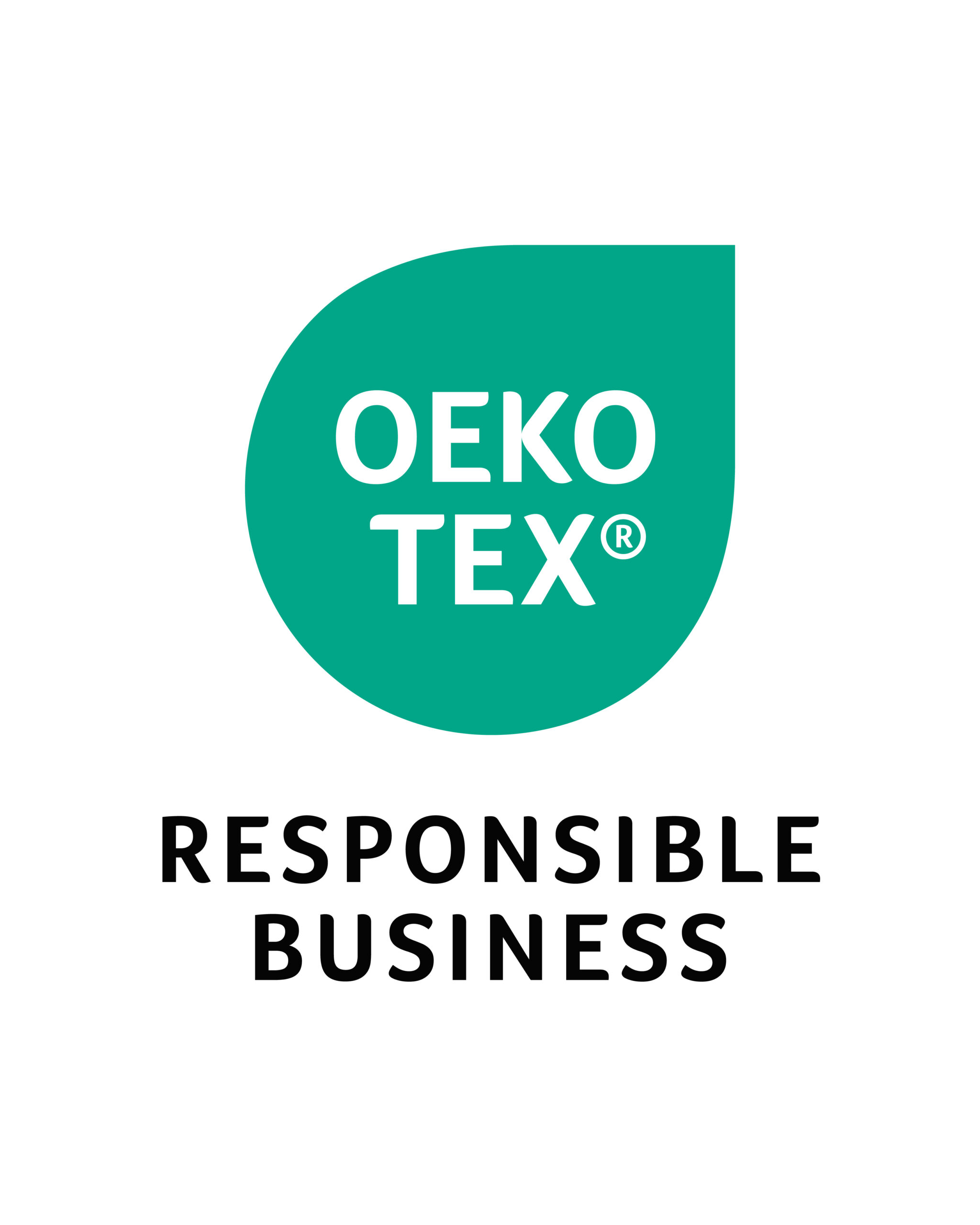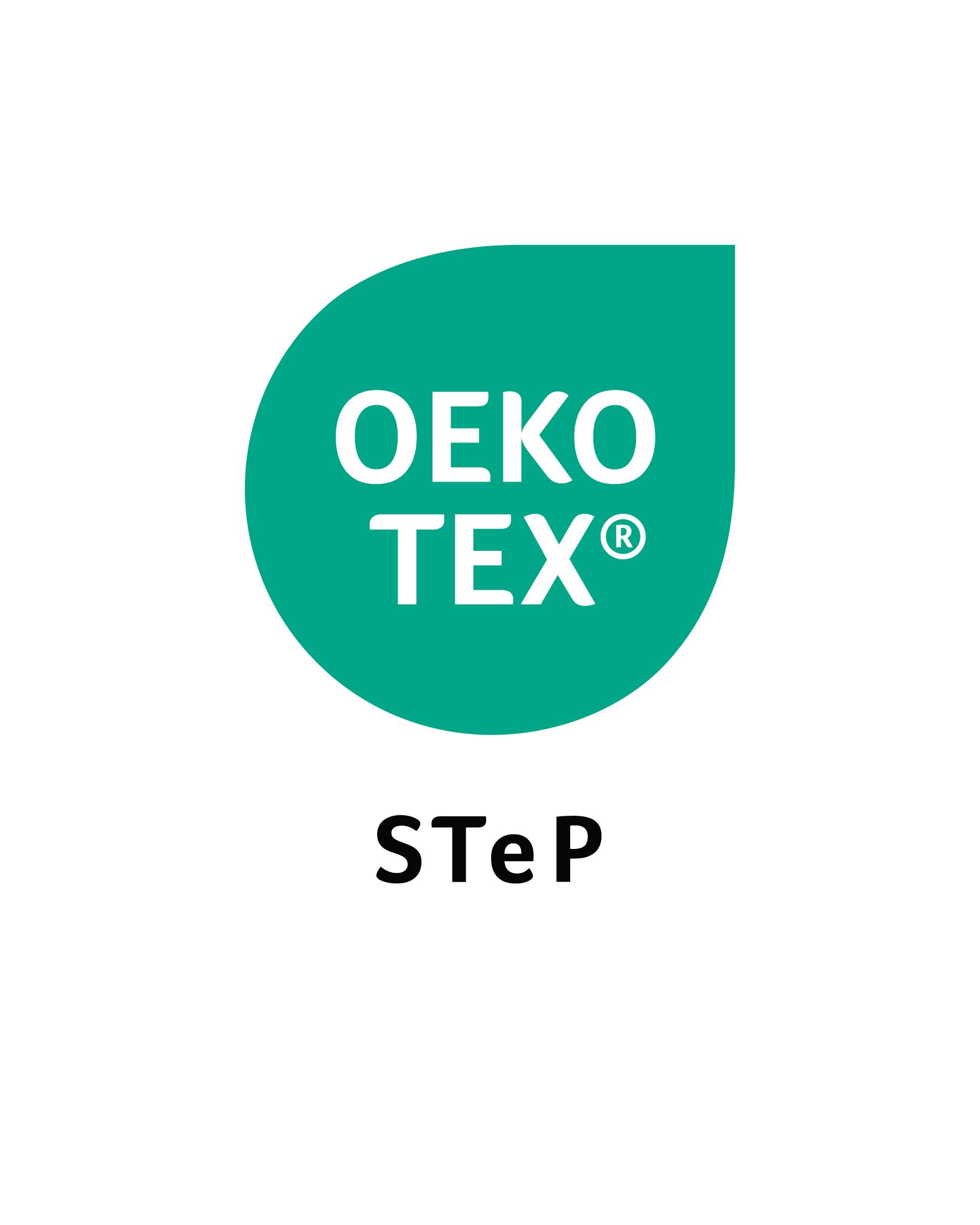SPONSORED CONTENT – Pioneering transparency and compliance in the textile and leather supply chains.
As a founding member and official testing and certification institute of OEKO-TEX®, OETI provides the OEKO-TEX® RESPONSIBLE BUSINESS management process certification.
This certification helps companies demonstrate comprehensive supply chain due diligence regarding human rights and environmental standards in the textile and leather industry, as required by the EU Corporate Sustainability Due Diligence Directive (CSDDD).
Additionally, the OEKO-TEX® STeP certification, designed for textile and leather manufacturers, establishes high social and environmental standards, covering essential areas like chemical management, environmental and quality management, social responsibility, and workers’ health and safety.


OEKO-TEX® RESPONSIBLE BUSINESS
How does it work? Mitigating risk, increasing transparency and compliance.
RESPONSIBLE BUSINESS operates through a comprehensive certification process, including third-party audits that verify adherence to social, environmental, and governance criteria. This certification aids companies in identifying and mitigating risks – such as forced labour, unsafe conditions, and pollution – and addressing potential issues before they escalate in their supply chain.
Who benefits and why: Corporations, brands, retailers
The CSDDD mandates rigorous due diligence in high-risk industries like textiles to prevent human rights violations and environmental harm. OEKO-TEX® RESPONSIBLE BUSINESS provides a structured approach to meet these requirements, reducing the risk of penalties while supporting ethical practices.
The need for action
As expectations for sustainable practices rise among consumers and regulators, the CSDDD solidifies these standards into law. OEKO-TEX® recognised this need, introducing RESPONSIBLE BUSINESS to guide companies in operating transparently and sustainably.*
OEKO-TEX® STeP
(Sustainable Textile and Leather Production)
With OEKO-TEX® STeP, we are well-established in the market as a reliable partner. STeP is a sign of responsibility towards employees and the environment and supports a company’s journey towards more sustainable production.
What are the benefits?
• The certification covers all facility types throughout textile and leather production, from fibre manufacturing and spinning or tanning to finishing and assembly.
• A network of over 35,000 certified companies worldwide supports easier sourcing of chemicals, materials, and business partners along the textile and leather supply chain.
• Listings in the ZDHC Supplier to Zero programme and the BHive® App, a platform supported by GoBlu, provide additional visibility.
• The certification recognises existing third-party standards and certifications, such as BSCI, FWF, SA8000, ISO 14001, and ISO 9001.
• OEKO-TEX® STeP certification includes criteria that align with various industry standards and initiatives, such as ZDHC, GoBlu, SLCP, and SLF.
• The certification includes the Impact Calculator, a tool that calculates a facility’s carbon and water footprint and identifies opportunities for proactive environmental measures.
• With the OEKO-TEX® STeP certification, companies can apply for the OEKO-TEX® MADE IN GREEN product label.
With OETI’s OEKO-TEX® RESPONSIBLE BUSINESS and OEKO-TEX® STeP certifications, textile and leather companies are equipped with comprehensive tools to secure transparency and compliance across their supply chains, meeting rigorous environmental and social standards while addressing the growing demand for sustainable and responsible practices.
*The OEKO-TEX® Responsible Business certification requires companies to implement due diligence systems that align with international frameworks like the UN Guiding Principles on Business and Human Rights and the OECD Guidelines for Multinational Enterprises, which are also at the heart of the CSDDD.
Learn more: www.oeti.biz















